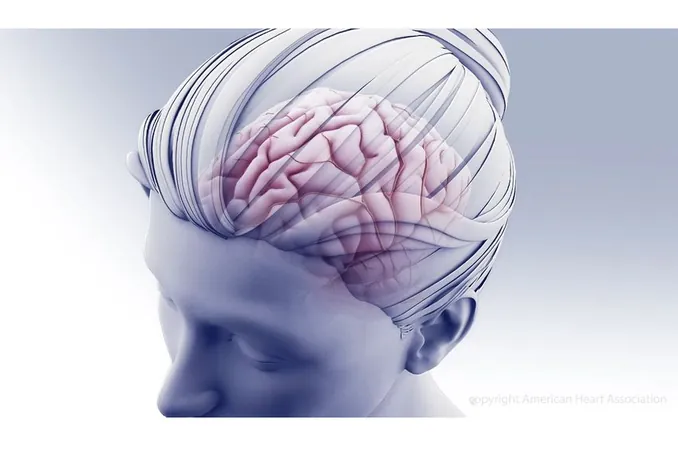
Could a Blood Test Revolutionize Disease Prediction as We Age?
2025-04-18
Author: Arjun
The Reality of Aging and Disease Risk
As we celebrate each passing birthday, our chronological age is often the only number that matters. But what if we told you that age isn't everything? A person born on January 12, 1950, is indeed 75 today, yet biological age—the actual health age of our body—plays an even more crucial role in our susceptibility to disease. One 75-year-old with great genetics and a healthy lifestyle could function at a biological age of 65, while a 60-year-old could be biologically 80, drastically increasing their risk of serious health issues.
Groundbreaking Research Reveals the Potential of Blood Tests
A groundbreaking study spanning over 20 years and involving more than 6,000 British adults has emerged, shedding light on this very topic. Published in The Lancet, the report unveils a simple blood test capable of determining if our organs are aging faster than they ought to. This test could predict the likelihood of developing as many as 45 age-related diseases, from heart problems to dementia.
How Does Organ Aging Relate to Disease?
Lead researcher Mika Kivimaki from University College London highlights a startling finding: organ-specific aging maps out risks of age-related diseases long before they manifest. For example, a heart that biologically ages quicker serves as a significant warning sign for cardiovascular disease. Likewise, accelerated lung aging might lead to increased risks of chronic obstructive pulmonary disease and lung cancer. The study showcases a web of connections—when one organ ages hastily, it can set off a chain of complications across the entire system.
The Hidden Dangers of Kidney Aging
Remarkably, the study reveals kidney aging poses unique risks. Renal decline is linked not just to kidney-related issues but also escalates the risk of diseases affecting the liver, pancreas, lungs, and cardiovascular system. What's even more shocking? When other organs age prematurely, the kidneys are particularly vulnerable to damage, indicating a complex interplay of organ health.
The Immune System's Profound Influence
What stands out is the influence of the immune system on overall aging. Contrary to previous assumptions, the highest risk for dementia didn't stem from accelerated brain aging but from an impaired immune response. Chronic inflammation—often tied to immune system decline—plays a significant role in neurodegenerative disease development.
A Paradigm Shift in Preventive Medicine?
Kivimaki believes that blood tests like the one in this study could become pivotal in preventive medicine, allowing for earlier interventions tailored to individual needs. This could help prioritize those most at risk, ultimately personalizing healthcare like never before. Collado, another expert, envisions these analyses transforming research methods and patient treatment, turning how we approach diseases on its head.
Caution on Accessibility
However, the road ahead isn't without its challenges. While the implications are exciting, Borrás cautions that the high cost and advanced technology involved in such blood tests might limit their widespread application in clinical settings. Addressing these barriers will be essential in making this innovative predictive tool a reality for all.




 Brasil (PT)
Brasil (PT)
 Canada (EN)
Canada (EN)
 Chile (ES)
Chile (ES)
 Česko (CS)
Česko (CS)
 대한민국 (KO)
대한민국 (KO)
 España (ES)
España (ES)
 France (FR)
France (FR)
 Hong Kong (EN)
Hong Kong (EN)
 Italia (IT)
Italia (IT)
 日本 (JA)
日本 (JA)
 Magyarország (HU)
Magyarország (HU)
 Norge (NO)
Norge (NO)
 Polska (PL)
Polska (PL)
 Schweiz (DE)
Schweiz (DE)
 Singapore (EN)
Singapore (EN)
 Sverige (SV)
Sverige (SV)
 Suomi (FI)
Suomi (FI)
 Türkiye (TR)
Türkiye (TR)
 الإمارات العربية المتحدة (AR)
الإمارات العربية المتحدة (AR)